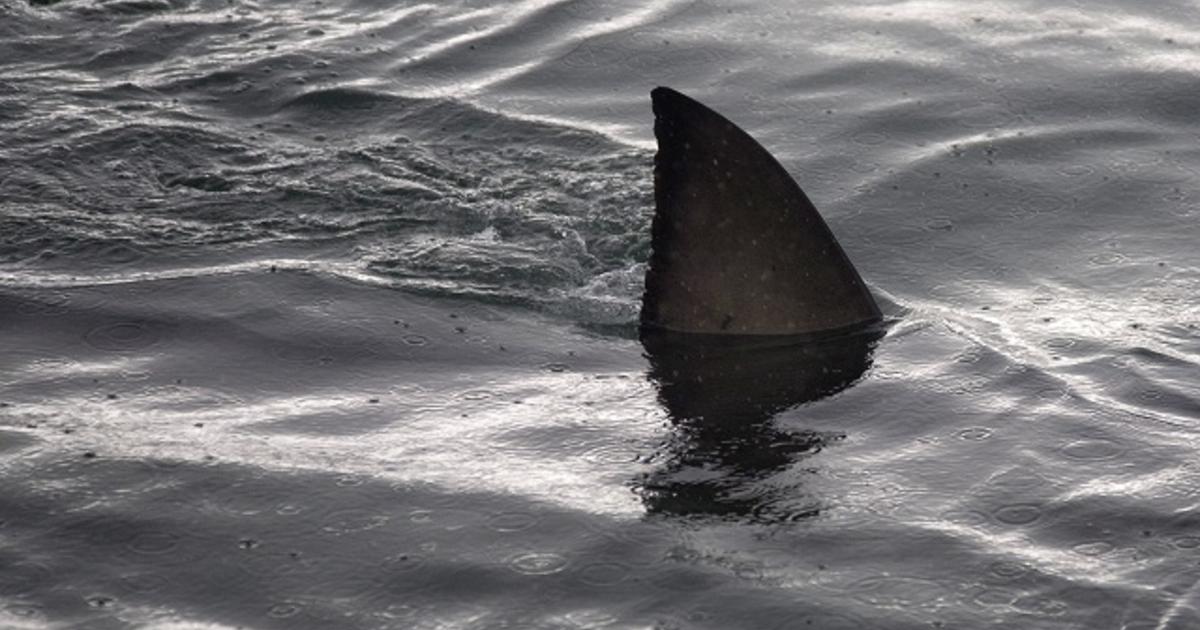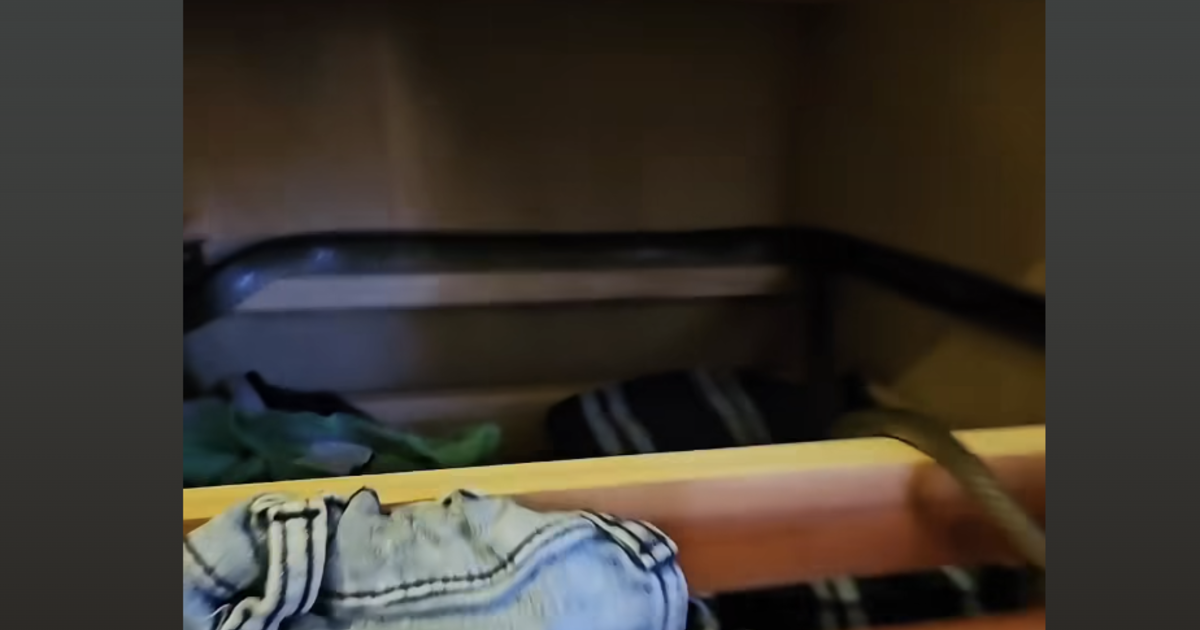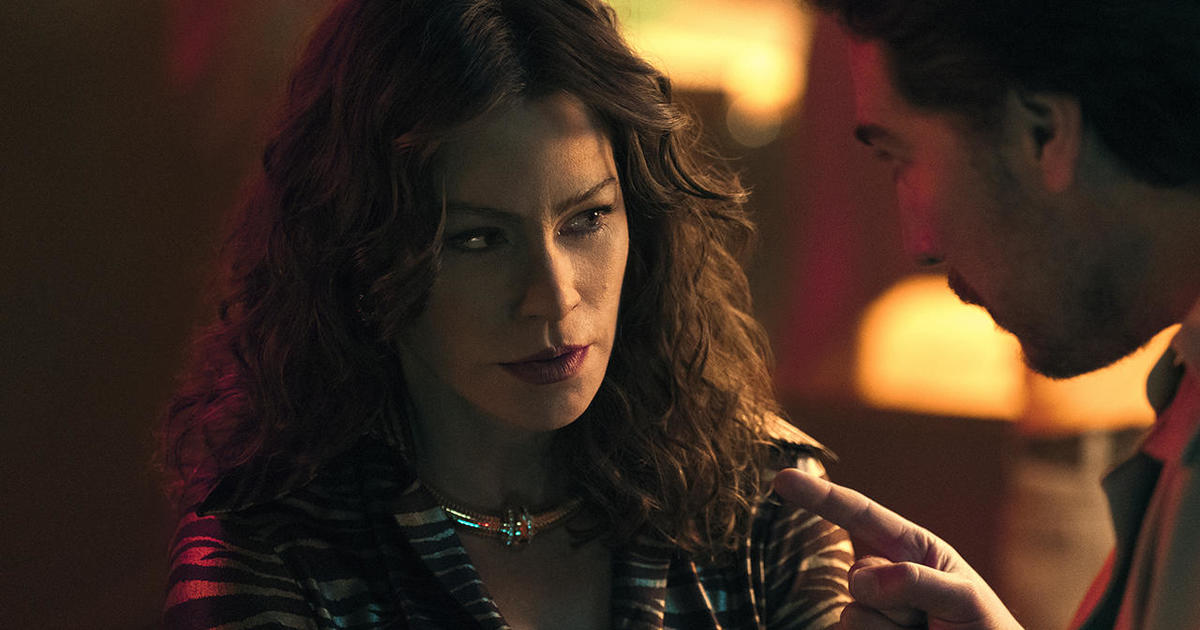Texas mother Kate Cox on the outcome of her legal fight for an abortion: "It was crushing"
Lifelong Texans Kate and Justin Cox were already parents to a young girl and boy when they found out last August that Kate was pregnant again. "We have the two children that we absolutely adore, and yeah, the thought of having a third one added to the family was incredible," Justin said.
But a series of tests revealed the baby they were expecting, a girl, had trisomy 18, a genetic condition that causes severe developmental problems.
According to a 2016 study, nine out of 10 infants won't survive more than a year. And for Kate and Justin's baby, the prognosis was even more grim.
Kate said, "We asked, 'How long we could have with our baby – best-case scenario?' And she said she thought maybe a week. … If she survived the pregnancy and the birth, that it might be a week. And what that would mean as far as – I didn't want to watch her suffer. That would be very hard. She would have had to be placed directly on to hospice. There's no treatment that can be done."
Smith asked, "Did you think your health, your life, would be threatened if you went through with the birth?"
"Yes," Kate replied. "We know a lot of the trisomy 18 babies don't survive birth, so I could lose her at any point in the pregnancy. There's risk of infection, risk of uterine rupture. And we want more children as well, so what does that mean for future pregnancies?"
The Coxes wanted to get an abortion. But in Texas, abortion is illegal. So, Kate contacted the Center for Reproductive Rights and attorney Molly Duane.
"She made it very clear that this is where her home was," Duane said. "She needed and wanted an abortion, and she wanted to be able to access it in her home community."
Kate said, "I wanted to be here, close to home. I mean, it's the hardest thing I've been through. I wanted to come home, cry on my own pillow, hold my babies, be near my doctors. So, I was really hopeful. That's really what I thought about most going into this."
Smith asked, "Some of the people on this other side of the issue say, 'Why not just have the baby naturally, and whatever happens, happens'?"
"I want more babies," Kate replied. "I talked with our doctors. And I didn't want her to suffer. I felt it was best for her, and I felt it was best for our family as well. We want to be able to have more babies. We want to give siblings to our kids."
Since the U.S. Supreme Court overturned Roe v Wade in 2022, 14 states (including Texas) have broadly banned abortion. The Texas law says there are exceptions for a "life-threatening physical condition … or a serious risk of substantial impairment of a major bodily function."
- A year after Dobbs v. Jackson: Majority of Americans not happy with abortion restrictions
- CBS News poll finds most say Roe's overturn has been bad for country, half say abortion has been more restricted than expected
Duane believed Kate's case fell under that exception: "Yes, and so did her doctor. The problem is, no one knows what that means. Major bodily function? What about a minor bodily function? Surely fertility would count as a major bodily function. But there's no clarity about this."
In 2021, the year before the bans, there were more than 50,000 abortions performed in Texas. Last year, there were just 40.
The penalties Texas doctors face for performing an abortion are high: fines of at least $100,000, and up to 99 years in prison.
And there's more: "Anyone who provides an abortion, or aids or abets in the provision of an abortion, is potentially liable for at least a $10,000 fine that can be filed by anyone in the world," Duane said. "So, if Justin drove Kate to the doctor's office for the abortion procedure, then he has 'aided or abetted.'"
"He could be liable for $10,000?" asked Smith.
"At least $10,000, correct"
So far, no private citizen has successfully sued another for aiding an abortion. But the Coxes, and their doctor, didn't want to risk prosecution. So, in December, when Kate was 20 weeks pregnant, they sued the state of Texas. "We were asking for a court order to say Kate can get an abortion in Texas, and her doctor and her husband would be protected by that court order," Duane said.
The District Court granted their restraining order. But the Texas attorney general sent a letter to doctors and hospitals warning they could still be prosecuted if they helped Kate get an abortion – and he filed an appeal with the State Supreme Court.
Smith asked, "As the Texas Supreme Court is debating this, what are you going through?"
"I mean, I didn't hardly get out of bed – stressed, you know? I had a timeline. I couldn't wait," Kate said.
They decided they had to go out of state. The Coxes had the abortion in New Mexico, and said goodbye to a future they'd already been grieving.
"Her name's Chloe," Kate said.
"Why did you feel it was important to give her a name?" Smith asked.
"I gave her a name because she'll always be my baby," Kate replied. "Her middle name is my grandfather's name, so that she knew who to look for in heaven."
On December 11, while the Coxes were away, the Texas Supreme Court overturned the lower court's ruling.
Duane said the court decided that "essentially, Kate wasn't sick enough. And I think what that makes clear to me, and the fact that the attorney general fought it as hard as he did, is that the exception in Texas doesn't exist at all."
Smith asked Kate what she though when she heard their ruling.
"It was crushing," said Kate. "I was shocked that the state of Texas wanted me to continue a pregnancy where I would have to wait until a baby dies in my belly, or dies at birth, or lives for days, and put my own health at risk, and a future pregnancy at risk."
CBS News reached out to the Texas attorney general, and received no reply.
The Coxes received hundreds of letters of support. But Kate stayed away from social media, where people on both sides weighed in, including former Pennsylvania Senator Rick Santorum. In the middle of the debate, he posted a picture online of his daughter, who has trisomy 18 and is a teenager.
Smith asked, "Did you think there was any chance that your baby could have survived?"
Justin replied, "You can't simply say, 'My child has trisomy 18, so yours would have ended up like this.' I think that's a little ridiculous. Every case is different. And ours was extremely, extremely bleak. It was as severe as it gets, basically."
The Coxes say the holidays with their family gave them some time to get back to normal. And they'll soon try to have another baby.
Molly Duane has another abortion case in front of the Texas Supreme Court, and she says she's hopeful.
Smith asked, "Ultimately, Kate Cox didn't prevail. She lost. But did she make a difference?"
"She absolutely made a difference," Duane replied. "She got the healthcare that she needed. She got an abortion. But in terms of big picture, she brought people along on this journey with her, and she helped people understand the true human toll that abortion bans take on families."
Smith asked Kate, "If you could do it all over again, would you do this again? Would you go through with the lawsuit again?"
"I would," said Kate. "I've gotten to hear a lot of stories, you know, for other women. And I have a daughter. I hope the law will be different one day. So, if I had to do it over, I would."
For more info:
Story produced by Kay Lim. Editor: Lauren Barnello.
See also:
- Dr. Tim Johnson on finding a middle-ground in the abortion debate ("Sunday Morning")
- Sherri Chessen on her 1962 abortion, and the fate of Roe: "We can't go back to willow sticks and knitting needles" ("Sunday Morning")
- How Supreme Court conservatives are reshaping Americans' rights ("Sunday Morning")
- SCOTUS' abortion ruling, and when a right becomes a crime ("Sunday Morning")
- A frontline in the fight over abortion ("Sunday Morning")
- Abortion: The great divide ("Sunday Morning")
for more features.





